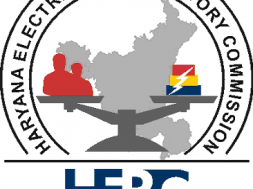
Module, Inverter, and Glass Manufacturers Unveil $2 Billion Investment for Vertically Integrated Production – EQ Mag
-
3 solar PV companies in Germany have announced a partnership for vertically integrated production plans
-
€2 billion is estimated to be invested to expand Heckert Solar’s module capacity, while adding solar cell, and polysilicon production, including wafer manufacturing
-
The trio of Heckert, Wattcraft and Interfloat have applied for funding under the BMWK’s 10 GW manufacturing tender
Solar module manufacturer Heckert Solar, PV inverter supplier Wattkraft Systems and solar glass manufacturer Interfloat Corporation have joined hands for GW-scale vertically integrated production plans in Germany.
The trio plans to invest €2 billion to realize the silicon to module manufacturing ambition in 3 locations.
According to the plan, Heckert’s existing module production capacity in Langenwetzendorf, Thuringia will be scaled up to 2.8 GW/year with the expansion of an existing production hall and addition of a new one. Currently, the module fab operates 400 MW/year capacity.
Heckert’s existing buildings at Frankfurt’s Oder location will also be modified for cell production, and to set up polysilicon production, including wafer production, each with an annual volume of 5 GW.
They aim to produce glass-glass PV modules with 24% efficiency using new cell technologies, which the partners did not reveal. They claim the modules will be low-cost and come with a guaranteed carbon footprint lower than the required 18g/kWh, while complying with the highest ESG standards.
Interfloat, part of India’s Borosil Renewables now, will manufacture the world’s ‘1st’ antimony-free, low-iron, textured solar glass for the combined value chain at its Brandenburg location, they added.
“The aim of the three consortium partners is to cover at least 90% of the added value in Germany in order to achieve more influence on module and cell development and, above all, greater independence from global suppliers,” stated Heckert. “This is the only way to create resilient and diversified module production in Germany and Europe.”
The consortium is seeking government support for these manufacturing plans via the Federal Ministry of Economics and Climate Protection’s (BMWK) 10 GW manufacturing tender for lighthouse projects.
Another European cell and module manufacturer Meyer Burger is also in the running for the German tender for its 5 GW INTEGRA project.













